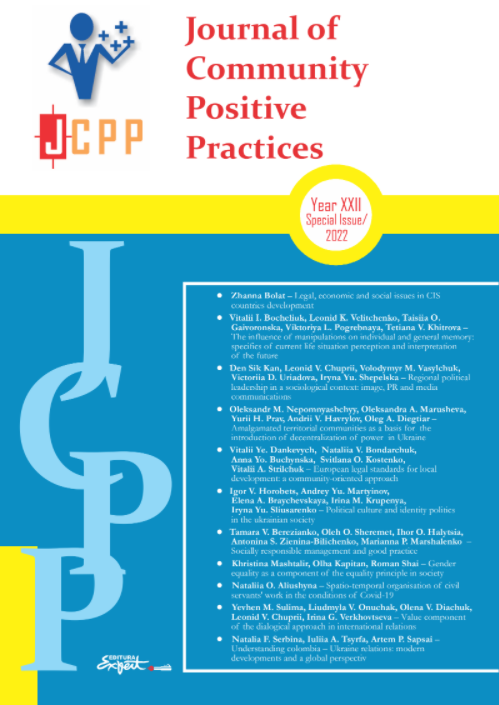Value component of the dialogical approach in international relations
Value component of the dialogical approach in international relations
Author(s): Yevhen M. Sulima, Liudmyla V. Onuchak, Olena V. Diachuk, Leonid V. Chupriі, Irina VerkhovtsevaSubject(s): Social development
Published by: Asociatia pentru Dezvoltare si promovare socio-economica Catalactica
Keywords: international dialogue; international relations; subjects of international relations; conflicts; cooperation;
Summary/Abstract: In the modern, globalised world, international relations have expanded from traditional issues of war and peace, which were dealt with by heads of state and career diplomats mainly on a bilateral basis, to include economic, environmental, humanitarian, cultural, educational, scientific, religious relations with the establishment of international organisations that act as platforms for coordinating the interests of different countries. The development of production, education, science, and environmental problems increase the importance of international relations, given the interdependence of countries, the impossibility of development without broad international cooperation, which requires a high level of tolerance and humanisation of relations. The purpose of this study was to investigate the features of modern international relations, changes in their guidelines towards broad cooperation between countries, peaceful resolution of conflicts and disputes, which mainstreams the search for tools most suitable in this regard. In the course of the study, the following methods of scientific cognition were used: comparative historical method, generalisation method, idealisation method, and the method of systematic approach. The study defined dialogue as a universal way of communication between subjects of international relations, the role of which in modern international relations has considerably increased. The study noted that in modern dialogue, the role of personal, cultural, and other features of its participants increases. Since it is dialogue in its various forms and manifestations that constitutes a universal form of coordination of the interests of subjects of different countries, and its spheres and range of subjects have substantially expanded, the development of purposeful forms of dialogue will contribute to the search for effective regulatory, institutional, communicative, and other forms of conflict resolution and coordination of interests aimed at developing international cooperation.
Journal: Jurnalul Practicilor Comunitare Pozitive
- Issue Year: XXII/2022
- Issue No: SI
- Page Range: 126-140
- Page Count: 15
- Language: English

